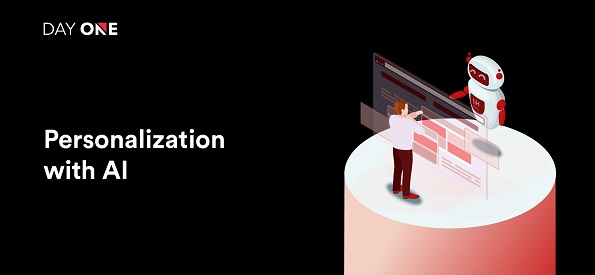AI-Powered Personalization: Tailoring Experiences in the Digital Age
In the ever-expanding digital landscape, the concept of personalization has become a driving force behind user engagement and satisfaction. AI-powered personalization, fueled by the capabilities of artificial intelligence and machine learning, has emerged as a game-changer in delivering tailored experiences across various platforms. From e-commerce websites and streaming services to social media and beyond, the integration of AI-driven personalization is reshaping how individuals interact with digital content.

At its core, AI-powered personalization involves the use of algorithms and data analytics to analyze user behavior, preferences, and patterns. By leveraging machine learning models, these systems can adapt and evolve, continuously refining their understanding of individual user needs. The result is a highly customized experience that not only meets but anticipates user expectations, enhancing user satisfaction and fostering brand loyalty.
One of the most prominent examples of AI-powered personalization is evident in e-commerce platforms. As users browse products and make purchases, AI algorithms track and analyze their interactions. This data is then utilized to generate personalized recommendations, showcasing products that align with the user’s preferences and purchase history. This level of personalization not only streamlines the shopping experience but also increases the likelihood of users discovering and engaging with products they might not have otherwise encountered.
Similarly, content streaming services employ AI-powered personalization to enhance the user experience. Algorithms analyze viewing habits, genres, and user ratings to recommend movies, TV shows, or music tailored to individual tastes. This not only keeps users engaged but also aids content providers in retaining subscribers by offering a curated content library that aligns with each user’s unique preferences.
Social media platforms have also embraced AI-driven personalization to curate feeds and content. By analyzing user interactions, such as likes, comments, and shares, algorithms determine the content that is most relevant and appealing to each user. This creates a personalized social media experience, ensuring that users see content from friends, influencers, and brands that align with their interests. The goal is to keep users engaged and maximize the time spent on the platform. See also our blog for more information.
The implementation of AI-powered personalization extends beyond consumer-facing applications. In the realm of online learning, educational platforms leverage AI algorithms to tailor learning experiences based on individual student performance and preferences. This ensures that learners receive content and resources that align with their specific needs, fostering a more efficient and personalized learning journey.
The success of AI-powered personalization lies in its ability to go beyond simple rule-based systems. Traditional personalization methods often relied on predefined rules and segments, limiting their adaptability to changing user behaviors. AI, on the other hand, excels at processing vast amounts of data and identifying intricate patterns, enabling it to deliver dynamic and personalized experiences that evolve with the user.
However, the implementation of AI-powered personalization is not without its challenges. Privacy concerns and the ethical use of user data are paramount considerations. As systems gather and analyze user information, there is a need for robust data protection measures and transparent communication regarding how user data is utilized. Striking a balance between personalization and privacy is crucial to building and maintaining user trust.
Moreover, there is the risk of creating “filter bubbles,” where AI algorithms only expose users to content that aligns with their existing preferences, potentially limiting exposure to diverse perspectives. Developers must be mindful of this and implement measures to ensure that personalization algorithms provide a balance between familiarity and the discovery of new and varied content.
Looking ahead, the future of AI-powered personalization holds exciting possibilities. As AI models become more sophisticated and capable of understanding nuanced user preferences, the level of personalization will continue to deepen. Integrating AI with emerging technologies like augmented reality (AR) and virtual reality (VR) could open new avenues for personalized experiences, allowing users to interact with digital content in more immersive and tailored ways.
In conclusion, AI-powered personalization is reshaping the digital landscape by providing users with highly customized experiences across various platforms. From e-commerce and content streaming to social media and education, the integration of AI-driven algorithms enhances user engagement and satisfaction. As developers and businesses navigate the ethical considerations surrounding user data, the potential for AI-powered personalization to revolutionize how individuals interact with digital content is immense. The ongoing evolution of AI technologies promises a future where personalization is not just a feature but a fundamental aspect of the digital experience. Contact us for more information.
